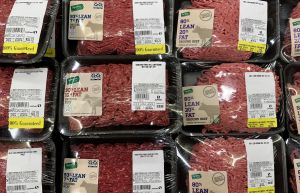After reanalysis, researchers are saying that the studies that showed antidepressants like Paxil safe, are actually unsafe for teenagers and those under the age of 25, according to the New York Times.
The study, performed in the 1990s and early 2000s, was said to clear the drug Paxil for use in teens, but controversy surrounding the findings created animosity within the scientific community for years.
A new interpretation of the study, published by the BMJ, concluded that the drug was not only ineffective, but was also dangerous.
"The efficacy of paroxetine [Paxil] and imipramine was not statistically or clinically significantly different from placebo for any pre-specified primary or secondary efficacy outcome," said the study. "There were clinically significant increases in harms, including suicidal ideation and behaviour and other serious adverse events in the paroxetine group."
GlaxoSmithKline, formerly SmithKline Beecham, was sued by the New York State Attorney General's Office after years of criticism from the scientific community on the validity of the company's claims that the drug helped children and teens with depression, according to CBS News.
In 2012, the company paid a fine of $3 billion for its less than truthful claims and skewed facts.
"I hope that at the very least this [new study] will add to the information base of patients, as well as doctors, and, hopefully, it'll help cut down on the over-medicalization of kids," said retired psychiatrist Dr. John Nardo.
© 2026 HNGN, All rights reserved. Do not reproduce without permission.








